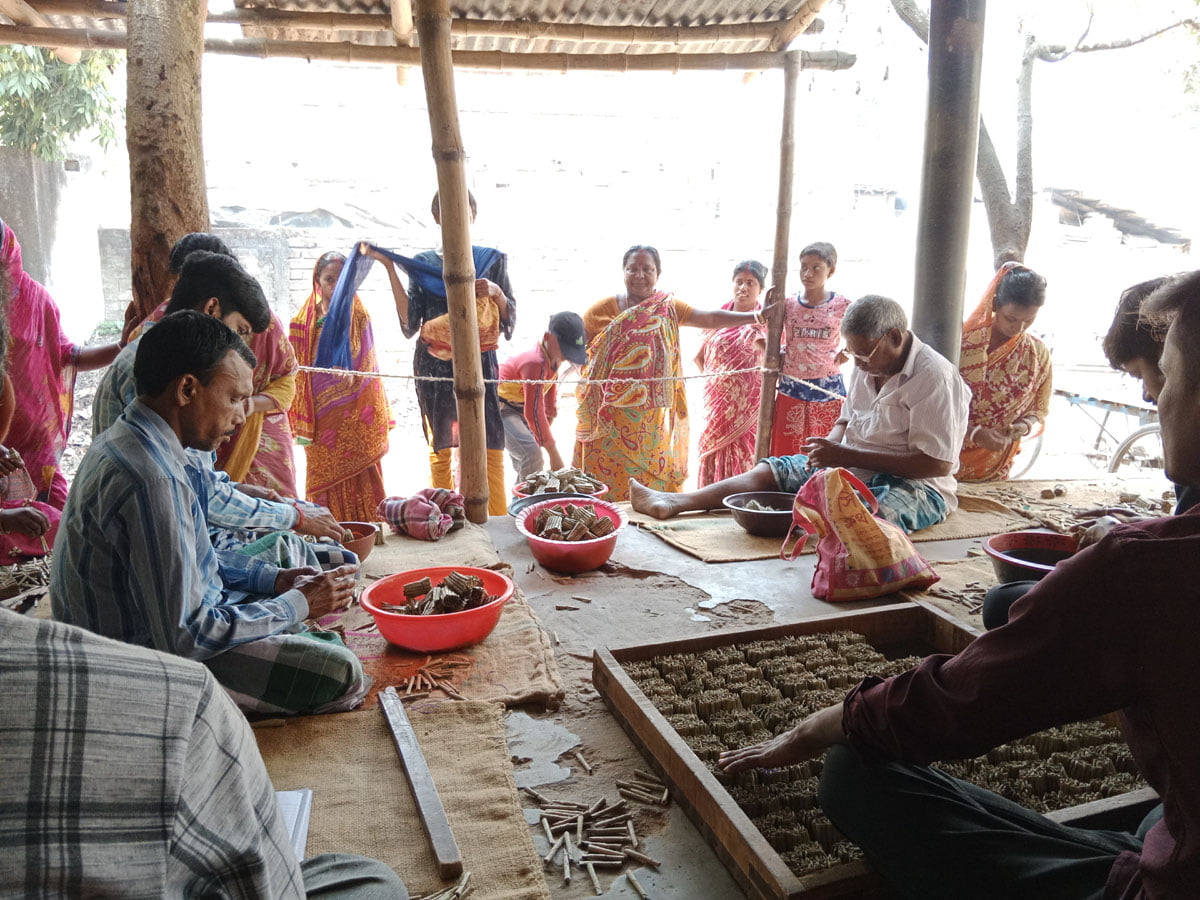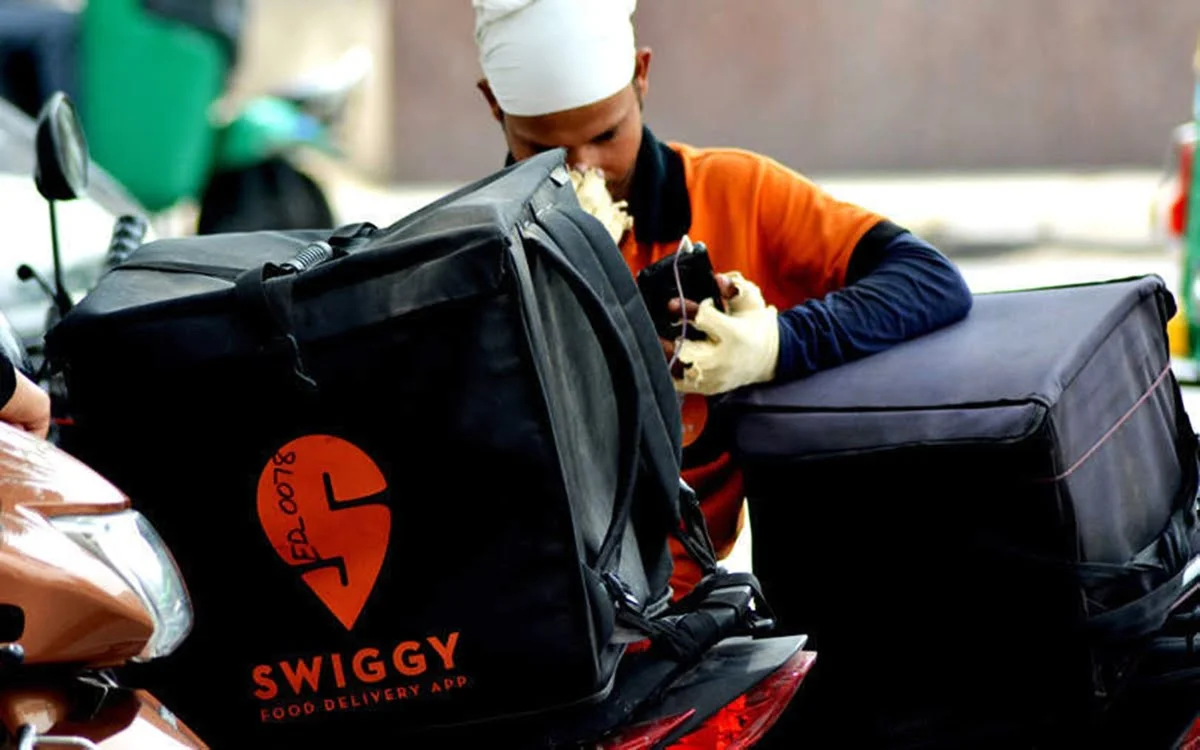By Rahul Singh
Kashmeera Biwi (50) has a persistent cough and cold, but it comes as no surprise considering that she rolls beedis all day long. “There is little we can do about it. This is our livelihood,” says Biwi exasperatedly. A resident of Railway Colony in Murshidabad district’s Farakka, she has been involved in beedi-rolling for decades.
A mother of five, Biwi is the main earning member of her family. Her elder daughter is married, and her younger one Bobby Khatoon (19) is in college. She helps out her mother during her free time. Biwi’s husband is unemployed, while all her sons run their own mobile shops.
Almost all the women in Farakka, except those working as domestic helpers, are part of the beedi industry. “Even women from well-off families join in because the presence of a personal income gives them a sense of self-reliance,” says Biwi’s son Babar Sheikh (28).
Also read: A Day In The Life Of The Women Beedi Rollers In West Bengal’s Birbhum District
In the shadow of tuberculosis
Dr Mosiur Rahaman, Block Medical Officer of Health at the Farakka Block Primary Health Centre, says tuberculosis (TB) cases are high in Farakka and beedi-making is to blame.
“Our hospital tests 200 to 250 suspected TB patients every month, of which 30 to 40 are confirmed,” Dr Rahman tells 101Reporters. This suggests that around 20% of patients test positive for TB, every month.
A paediatrician by specialisation, he elaborates: “We get a lot of cases of children suffering from allergies and shortness of breath. Pregnant women get exposed to harmful ingredients while at work, which in turn leave a lasting impact on the foetuses.”
Various studies show that occupational tobacco leads to a higher risk of decreased birth weight.
Dr Sadia Nourin from the same hospital adds, “Tobacco contains dangerous components such as nicotine, hydrogen cyanide, formaldehyde, lead, arsenic, ammonia, radioactive elements, and benzene, which are considered responsible for cancer.”
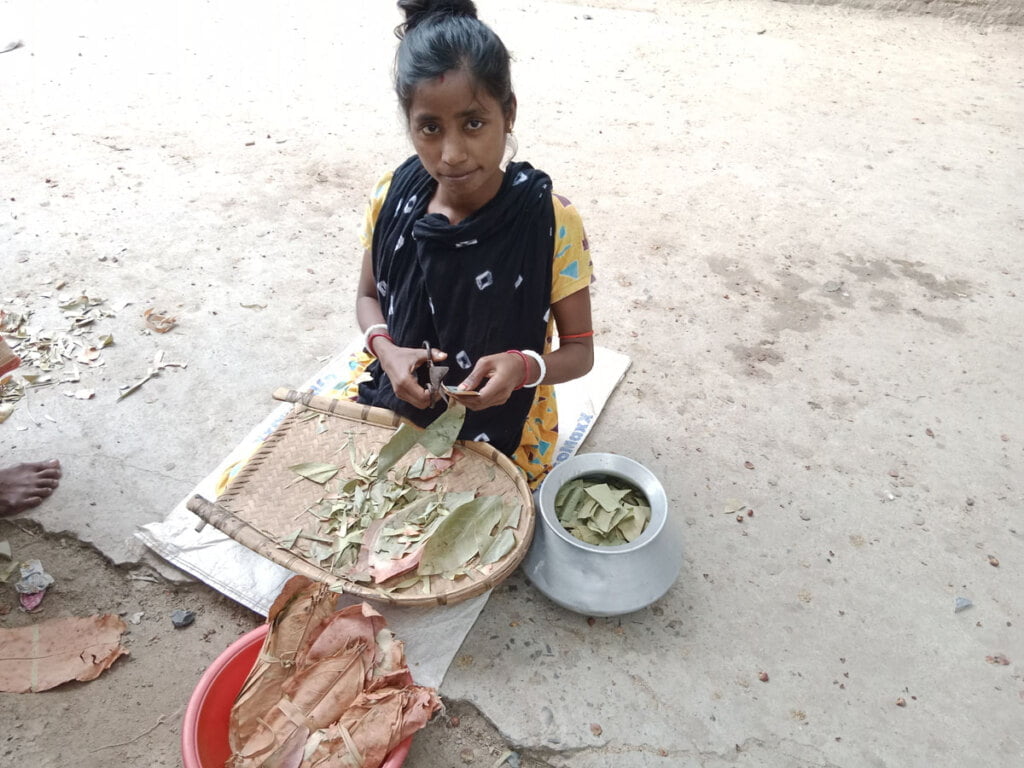
The National Family Health Survey (NFHS)-5 also paints a grim picture. The report finds 72.1% of children in the six to 59 months group in Murshidabad district are anaemic. Also, 78% of non-pregnant and 66.7% of pregnant women in the 15-49 age bracket are anaemic. These figures are significantly higher than the NFHS-4 data. According to research conducted five years ago on the health condition of 103 women beedi workers in Kalyani of Nadia district, each woman rolls beedis for five hours a day, and most of them complain of asthma, anaemia, dizziness, breathlessness, palpitation, cough, sneezing and sore throat. Two-thirds have symptoms of high blood pressure, too. The average age of these workers is 38.69, with a third under the age of 20.
An article in the International Journal of Humanities and Social Science Studies quotes the 2015 estimate of the Ministry of Labour, Government of India, which states there are 64 lakh beedi workers in India. The study on 120 women beedi workers found that 78.3% suffered from headaches, back pain and knee pain. An average of 23.3% had asthma and 28.3% had respiratory complications.
Also read: Despite Poor Wages & Exploitation, Women Continue To Roll Beedi To Sustain Their Families
To make matters worse, beedi workers do not understand the need to mask up. “Even during the pandemic, they wore masks only because they feared fines,” says Babar Sheikh.
When asked if she would wear a mask, Vandana (25) says, “I will think about it if the government makes it mandatory.”
Abysmal wages
Beedis are manufactured on a large scale in Murshidabad district of West Bengal and the adjoining Pakur district of Jharkhand. Noimuddin Momin, (50) claims 70% of people in Farakka are associated with the industry and adds that “no union for beedi workers operates here.”
However, Murshidabad District Beedi Mazdoor and Porter Union are active in the district.
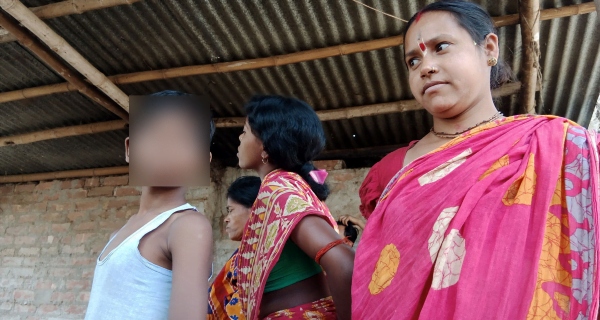
According to the 2011 Census, Farakka block had a population of 2.74 lakh, with the current estimate at 3.5 lakh. As it is on the Ganga’s banks, men were into fishing mostly. However, the dwindling catch rendered it unprofitable. An NTPC power plant employs some men in the locality.
Phoolo Rai (55) says the current market rate for rolling is Rs 175 per 1,000 beedis. However, most workers can roll only up to 600 beedis. So, they cannot earn more than Rs 80 per day.
Indu Basak (33) says she manages to earn Rs 100 to Rs 150 a day with her elder daughter’s contribution. “This money is essential to keep the family fed and clothed,” adds Basak, whose household comprises her e-rickshaw driver husband, a son aged 15, and two daughters aged 13 and 10.
Also read: How Women’s Collectives Are Solving The Problems Of Barren Land, Water Shortage In A MP Village
“We waited for four years for the implementation of minimum wages, but in vain,” says Md Azad, president, Murshidabad District Beedi Mazdoor and Porter Union.
“Last year, we reached an agreement with factory owners, whereby it was decided that the minimum wage would be Rs 267.44 per 1,000 beedis. Yet, workers are getting only around Rs 175.”
As per the law, factories should pay minimum wages to both contractual and full-time workers. “We are aware that workers are being paid less in many places, but we cannot act unless there is an official complaint,” explains Bidhan Chandra Mandal, Assistant Labour Commissioner, Berhampore.
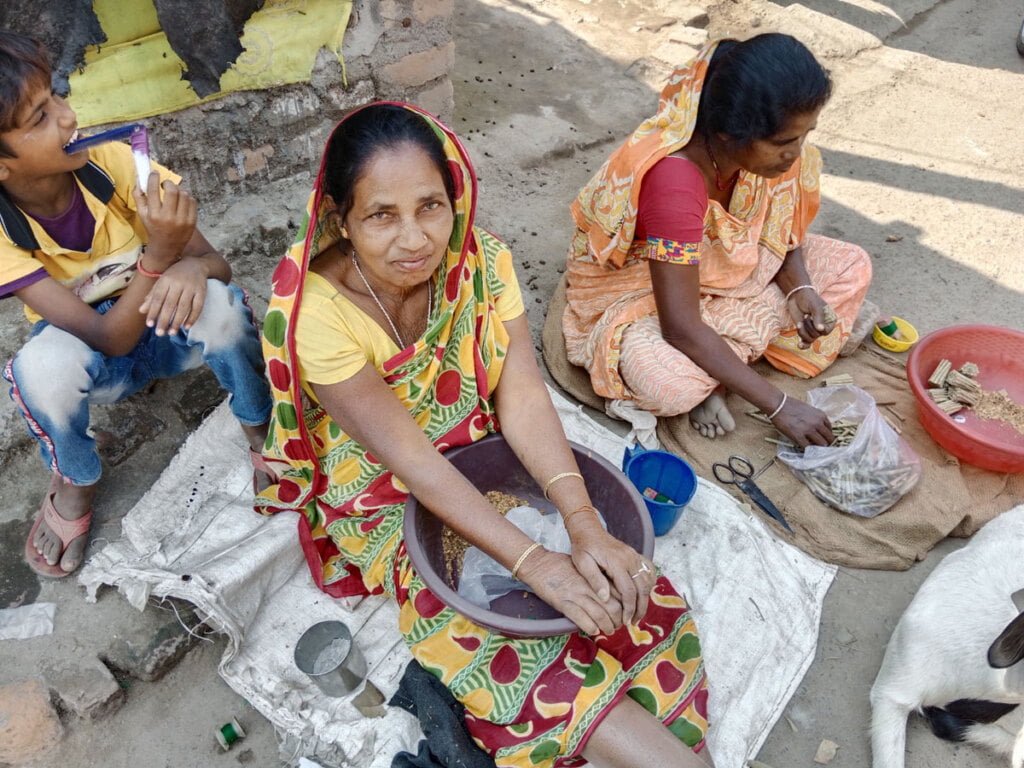
Momin, a beedi worker earlier, is a munshi to Dhiman Saha, a factory owner in the locality. Being a munshi is the highest promotion a worker can expect. But even this post does not provide social security or fixed working hours.
Saha supplies beedis to factories in Aurangabad, Dhulian, Kaliachak, and Jangipur, from where they are sold under company labels. Tendu leaves for beedis come from Chhattisgarh, Odisha and Maharashtra, while tobacco is from Gujarat. Locally available threads are used to bind beedis.
According to the figures from a state government survey, West Bengal has 20 lakh beedi workers.
“The Centre campaigns for tobacco eradication, but no alternative employment has been offered to these workers, who plan to protest at all block offices and district magistrate’s office on September 8,” informs Azad.
The author is a freelance journalist and a member of 101Reporters, a pan-India network of grassroots reporters.
About the author(s)
101Reporters is a pan-India network of grassroots reporters that brings out unheard stories from the hinterland.
